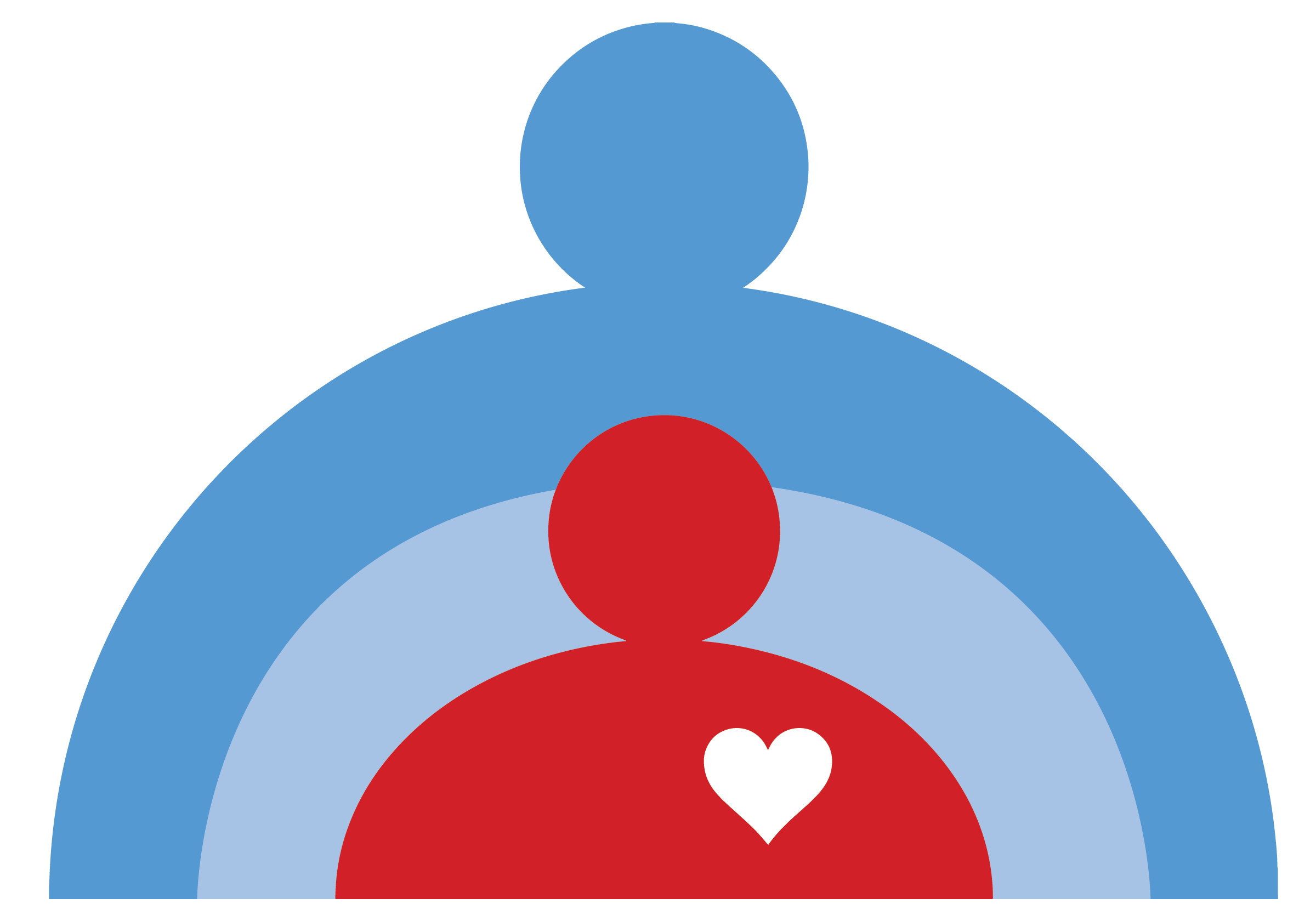The following questions address changes to operations during the Safer at Home order in Wisconsin. If you are a relative caregiver raising someone else’s child and have any type of issue or concern, call Kids Matter Inc. at 414-344-1220 and we will do our best to help.
This page aims to provide general information and is not intended to serve as legal advice. Every situation is unique. General information is not a substitute for legal counsel. Individuals needing legal advice or legal assistance should consult an attorney. **Last Updated: April 29, 2020**
Click here for a printable PDF of this information.
Q: I receive Social Security retirement, survivor or disability benefits (SSDI), Railroad Retirement benefits, Supplemental Security Income (SSI), or VA Compensation and Pension (C&P) benefits. How do I get the Economic Impact Payment for myself and my dependents?
A: The IRS will automatically send you your portion but if you have a qualifying child and didn’t file a 2018 or 2019 tax return, you have until May 5th to add eligible children using the special Non-Filers tool. The Non-Filers tool is available in English and Spanish.
Q: I didn’t give information on my dependents in time to the IRS. What happens to the $500 per eligible dependent?
A: You will still receive a check soon for the individuals the IRS knows about. The additional $500 per eligible child amount would be paid in association with a return filing for tax year 2020, so you would receive the money in 2021 (IRS).
Q: The child I’m taking care of didn’t live with me for more than half the year in 2019 so I can’t claim them as a dependent on 2019 taxes. How do I receive the $500 per eligible dependent as soon as possible since I’m taking care of the child now?
A: Since the Economic Impact Payment is an advance on 2020 tax credits, you can receive the $500 per eligible dependent when you file 2020 taxes if the child lived with you for more than half of 2020. But is there a way for you to get the money faster? The short answer is that we’re not sure. National advocacy groups are asking Congress to create a solution and we will make updates when new information is available.
Q: Can I apply for FoodShare and BadgerCare during the Safer at Home Order?
Yes, you can apply online. Click here to learn how to apply. In April and May 2020, some FoodShare applicants may not need to do an interview. Starting in April 2020, BadgerCare Plus children will not charge monthly premiums. You will get a refund if you already paid your April premium and do not owe outstanding premiums. For more information, visit the Department of Health Services.
Q: Can I apply for Kinship Care during the Safer at Home order?
Yes, Kinship is still accepting applications and you can request an application by phone. In Milwaukee County, call PSG for kinship care at 414-475-4200. Applications typically require an in-person walk-through of the home but the walk-throughs can be completed virtually. A home visit should be scheduled after the public health emergency has passed.
Q: Am I eligible for Unemployment Benefits?
The CARES Act expanded unemployment coverage. You are likely eligible if you experienced reduced hours or wages (including hourly and tipped employees), have been furloughed and will be returning to your job, have been permanently laid-off, or are unable to go to work because the place of employment is closed as a result of an Executive Order or other shelter-in-place order. There is also coverage for the self-employed, independent contractors, 1099 workers, and people impacted in other ways by COVID-19. For answers to many Unemployment questions, go to the Department of Workforce Development.
Q: Is Children’s Court still open?
A: Most in-person court proceedings are suspended until at least May 22, 2020, but many hearings are still being held by phone. You should receive a revised Notice of Hearing with a check-in clerk’s number. On the day of the hearing, call the check-in clerk to participate by phone. The Clerk’s office is still open from 12-2 p.m. M-F to accept in person filings or they are also accepting filings by mail. Documents can be mailed to: Vel. R. Phillips Juvenile and Family Justice Center, Clerk of Courts, Rm 1530, 10201 W. Watertown Plank Road, Wauwatosa, WI 53226. For up to date filing procedures, contact the clerk’s office at 414-257-7700. If you need help filing for guardianship, call Kids Matter Inc., and we can help explain your options.
Q: I don’t have a will or any estate planning documents in place and can’t afford an attorney. What do I do?
A: It is best to consult an attorney, but you can write your own will. Wisconsin statutes include a basic will form. The state Department of Health Services has links to state-approved forms for a living will, a power of attorney for health care and finances, and an authorization of final disposition, which designates someone you selected to make your funeral arrangements.
Q: How can I write a will when I live alone and it requires two witnesses?
A: One suggestion is to have neighbors watch you sign through a screen door and then hand it to them to sign outside. Some estate planning attorneys are offering “drive by signings.”
Q: I am caring for my grandchildren. What happens to them if something happens to me?
A: It is important to think about and identify another family member or friend who you would want to step in and care for the children should something happen to you. Once you have determined the person, discuss with him or her the plan to make sure they are onboard. If you have legally adopted the child, that person can be named as a guardian in estate planning documents. If you have legal guardianship, call Kids Matter Inc. at 414-344-1220 to discuss options for back-up planning.
Q: How does the Governor’s Safer at Home Order impact court ordered visitation?
A: The governor’s order does allow an exception for travel required by a court order, including to transport children pursuant to a custody or visitation arrangement. If there is an existing order for visitation, the pandemic should not be an excuse to violate the existing order without good cause or there could be consequences in the future.
Q: I have guardianship of my grandchildren, what is considered “reasonable visitation” with the parents given the pandemic?
A: Safety should be everyone’s priority right now. If a child is traveling back and forth between a caregiver and parent, it is important to ask if any members of the different households have been sick. Children going back and forth between homes could unknowingly acquire and carry the virus putting others in the home at risk. It is especially important for older caregivers to ask these questions since they are at greater risk for COVID-19. However, children need the support of all family now. Isolation from family can increase children’s anxiety. If in-person visits are not possible, consider more frequent telephone contact or use video technology such as Zoom, Facetime, or Skype.
Q: I can’t afford to pay my rent during the Safer at Home Order. Will I be evicted?
A: Talk to your landlord. Gov. Evers’ emergency order prevents landlords from evicting tenants until at least May 26. You can’t be forced from your home before May 26. Landlords can’t begin any part of the eviction process before that date. If your landlord violates the governor’s order and tries to evict you before then, you can report them to the state Department of Agriculture, Trade and Consumer Protection. You are still obligated to pay your rent and could be responsible for back rent, unless you work out a new formal agreement with your landlord (Milwaukee NNS).
Q: I can’t afford to pay my utility bills. Can utility companies disconnect my services during the Safer at Home Order?
A: No, your utilities cannot be disconnected and utilities cannot charge you late fees. You can also request to defer payments. If you recently had a utility disconnected, utilities are required to make reasonable attempts to reconnect service (CBS 58).
Q: I can’t afford to pay my debt right now, like my car payment or credit card bill. Are there protections for me against debt collectors?
A: Debt collectors cannot harass you (or your relatives, friends, or employers) or call you repeatedly during the coronavirus crisis. Debt collectors can follow-up with your communications and can coordinate a payment plan but they cannot threaten to sue (DFI).
Q: If I can’t pay my bills, should I take out a loan?
A: Be careful of predatory lending and scams. Read more in the Journal Sentinel here. Payday and other lenders who increase interest rates, fees, or any costs of borrowing during this time risk the status of their license to do business in Wisconsin, but there is still no formal limit to the interest rates they can charge (DFI).
Q: Can I still ride the bus?
A: MCTS buses are for essential trips only. A maximum of 10 passengers are allowed on a bus at a time. You must enter and exit the bus through the back door, unless you need help with a mobility device or other ADA accommodation. MCTS is not collecting fare (MCTS).
Q: What if my car needs an emissions test soon?
A: If you have a routine vehicle registration renewal date after March 12 and require an emission test, you will have 90 days from their renewal date to complete an emission test and maintain valid registration. Renew your plates online and then visit an emissions testing facility before the end of the extension (DMV).
Q: I feel sick. What should I do?
A: If you think you have been exposed to coronavirus and develop a fever and symptoms, such as cough or difficulty breathing, call your healthcare provider for medical advice. The Department of Health Services is now recommending that physicians test people who feel sick, so it is likely that you can be tested for coronavirus.
If you do not have a primary physician:
Milwaukee Health Department Hotline, 8:00 am-4:45 pm, 414-286-6800
Advocate Aurora 24-hour Hotline, 866-443-2584
Q: I’m an older adult who feels sick but don’t have trouble breathing or the other commonly reported symptoms of COVID-19. Should I just wait it out?
A: Doctors are beginning to report unusual COVID-19 symptoms for seniors. Symptoms include feeling “off,” delirium, falls, fatigue, lethargy, low blood pressure, painful swallowing, fainting, diarrhea, nausea, vomiting, abdominal pain and the loss of smell and taste. If you’re not feeling like yourself for a couple of days, reach out to a primary care physician or hotline (Kaiser Health News).






